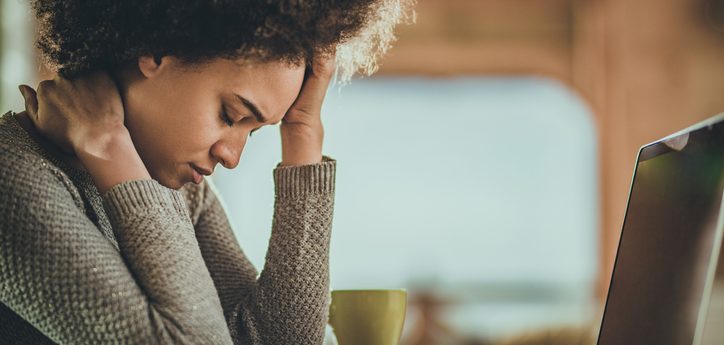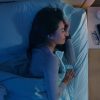Have you ever experienced eye twitching after staring at your computer for over 8 hours? Have your eyes ever hurt or felt strained, causing you to get a headache? Humans are now falling asleep to blue light and then waking up and immediately exposing their eyes once again. This happens when you fall asleep watching TV or scrolling through your phone, and in the morning immediately checking your phone for notifications when you wake up.
It’s become our natural habit, as we are using our screen devices more than ever before. We are setting our alarms before bed, reading the news, or checking morning emails, all from our mobile device which emits blue light.
Blue light is close to UV light on the spectrum, and is considered high-energy visible light also known as HEV. UV light comes from the sun or from special bulbs like in tanning beds. It is always recommended you wear protective sunglasses or goggles for UV light to reduce risk of cataracts. Blue light is next to UV light on the visible light spectrum.
Blue light exposure causes sleep problems, eye strain, neck and muscle pain, and most commonly headaches.
If you are on your computer for work and seem to commonly experience these symptoms, then it is recommended you give blue light glasses a try. If you notice yourself getting a headache after playing video games or reading on your tablet, then blue light glasses could be for you.
Blue Light glasses are a newer technology developed to help block harmful blue light rays that are emitted from our TVs, phones, computers, gaming systems, and even LED lights.
With the digital era that we are in, and the advancement of screens becoming more high-definition and larger, the need to protect your eyes from blue light is also increasing. The use of LED bulbs is more energy efficient, but also emits a lot of blue light. Overall human exposure to HEV light is higher than ever before, which is why blue light glasses have become a popular trend.
There are people who argue that using blue light glasses gives a placebo effect, but it has been proven in a Harvard study that blue light emission suppresses melatonin production, which causes sleep problems.
If you find yourself having sleep problems, blue light glasses could help. It is also recommended that you reduce screen time in the evenings. Unfortunately though, that is not always possible. If we can’t stay away from studying on our laptops or finishing up some work, blue light glasses are the easy answer to reducing your HEV light exposure and protecting your eyes.
You can learn more about the details of blue light and how it works on our website. When you are ready to try blue light protective glasses, check out our BlueTech selection. BlueTech is the gold standard for digital device protection, and we are here to continue innovating ways to reduce the harmful effects of blue lights.
Find BluTech Near You




